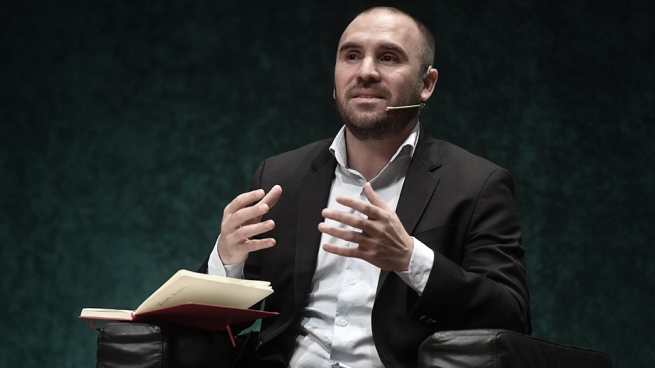The Minister of Economy, Martín Guzmán, reiterated that the Government seeks to finalize the agreement with the International Monetary Fund (IMF) this year, and specified that the project that will be sent to the National Congress in the first week of December will include the “understandings” to those who arrived with the agency’s staff.
The Minister pointed out that the intention is to “solve a very serious problem in the economy, under conditions that ensure that the country can continue on the strong recovery path through which we are moving,” during an interview with the radio station Radio con Vos.
“There are those who say: I would solve the problem in five minutes, but that is not solving anything, that is obeying, and negotiating is not obeying; It is a very complex situation in which the previous government should not have gotten into, “he considered.
“There are those who say: I would solve the problem in five minutes, but that is not solving anything, that is obeying, and negotiating is not obeying; it is a very complex situation in which the previous government should not have gotten into “
Guzmán insisted that “today we do not have the capacity to face the maturities as they are programmed. How can we face the payment of US $ 19,000 million next year and the same in 2023? There is no way,” he said.
“We seek to refinance, but not with any agreement. One like the one signed by the previous government would be extremely damaging for Argentina: we are looking for something quite different, a sustainable agreement based on our definition of economic policy,” he said.
He later recalled that the congressional endorsement of the agreement was provided for in the law to strengthen the sustainability of the public debt, “which we proposed in 2020 and was approved so that it can never happen again that a government in office acts in a way that does not involve to society, and in a short time a problem is generated that has costs for decades for generations. “
Guzmán stressed that the negotiation with the IMF included “a very different conceptual framework from what is standard or usual” in the agency’s relationship with countries that face problems in their balance of payments.

“The starting point,” he explained, “is to understand that what has historically stopped growth has been the lack of foreign exchange; therefore, this is the main obstacle to overcome, a set of macro conditions must be articulated with a role for the State from the productive policy and rules of the game that favor the development of sectors with the capacity to generate foreign exchange ”.
The Minister stated that “the previous program was based on the premise that the contraction in spending would generate a confidence effect, that this would lower the cost of credit and attract investment.”
“That does not work, we want the State to continue promoting the growth of demand to generate more productive capacity and a greater multiplier of the economy, as occurs now through investment in public works,” he explained.
At the same time, he said, it is aimed at “ordering the public accounts” on the basis that “the virtuous fiscal surplus is always the child of growth, not of adjustment; cutting public spending does not work and would be stopping the recovery ”.
Guzmán suggested reviewing the IMF communications after each discussion, during the current government, where “you can see how it has been transformed from a vision that prevailed in the 2018 program to where we stand today, in terms of the role of politics. monetary and fiscal and to the fact that inflation is a multi-causal phenomenon and not only monetary ”.
The Minister also referred to the questions suffered by the managing director of the IMF, Kristalina Georgieva: “due to the dynamics in recent months in international politics there were power disputes that generated doubts, noises and that affected her figure at a time when the which was under attack. Today the situation is more stable ”, he concluded.


















